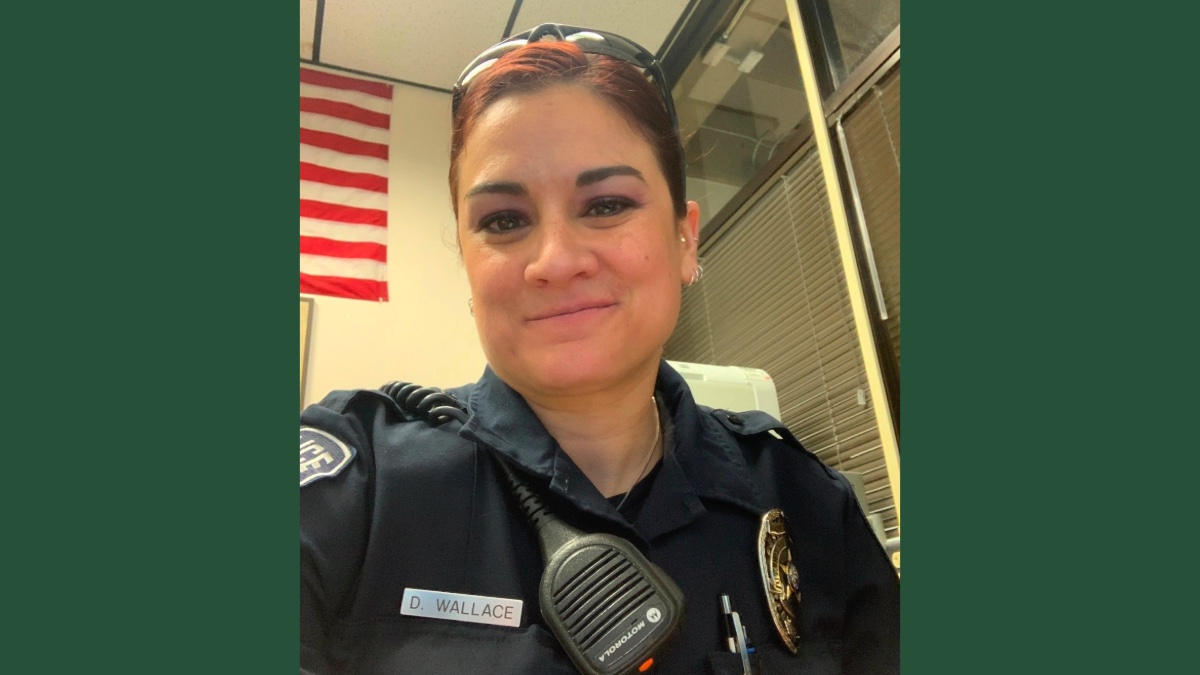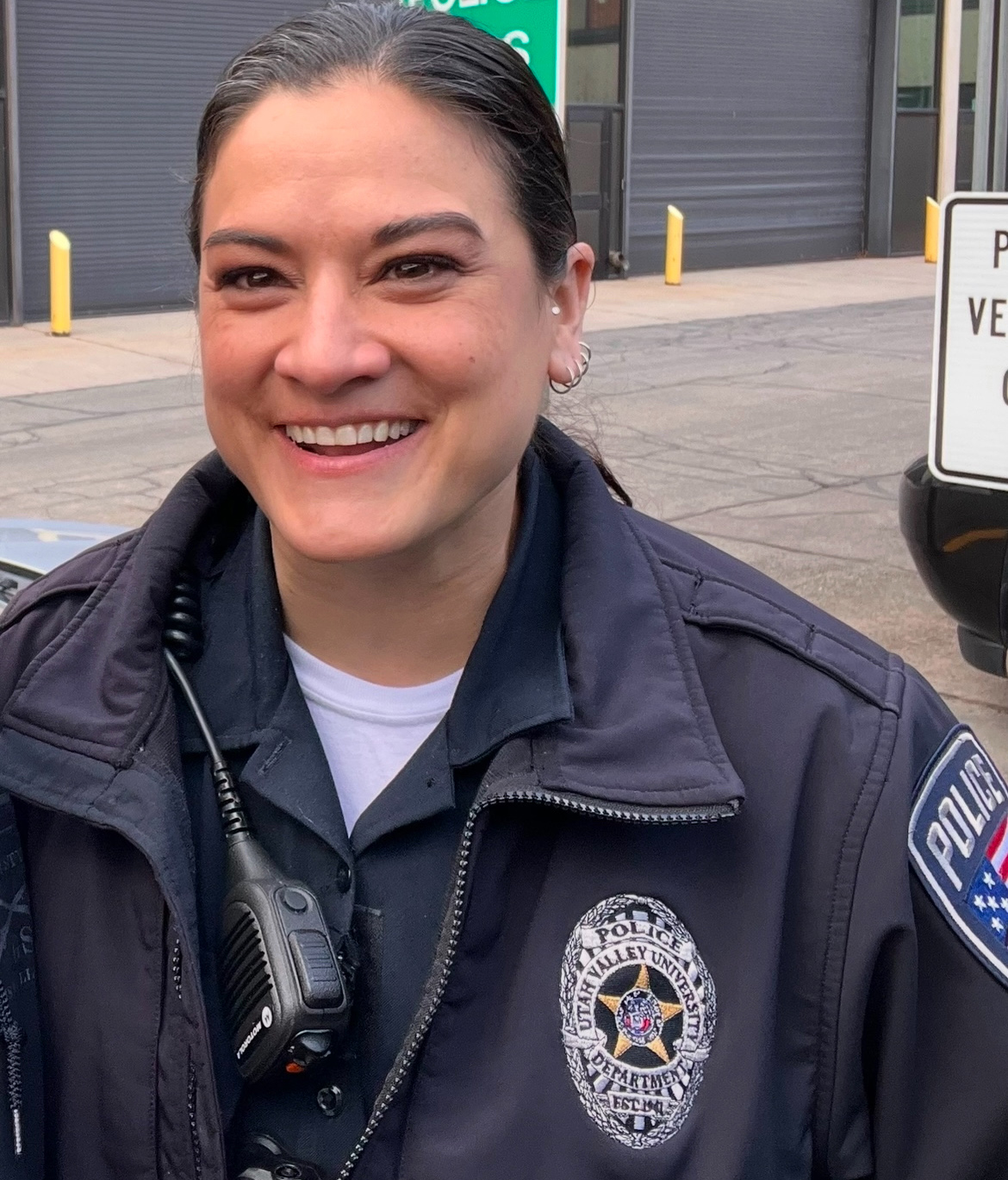As a law enforcement officer with more than a decade of experience in the Utah Highway Patrol and Lehi and Saratoga Springs police departments, UVU police officer Dana Wallace has seen people go through some of the worst days of their lives.

Utah Valley University police officer Dana Wallace knows a lot about bad days.
As a law enforcement officer with more than a decade of experience in the Utah Highway Patrol and Lehi and Saratoga Springs police departments, Wallace has seen people go through some of the worst days of their lives. And that experience, she said, takes a toll that the average citizen may not see.
“The amount of accumulated trauma that a police officer experiences throughout an extended career … you just see and deal with things that your average citizen probably won't deal with within their whole lifespan,” Wallace said. “It's not normal for us to see people intentionally harmed. It can mess with your psyche, because it's just not normal. People aren't supposed to see that. People aren't supposed to do that.”
Wallace said that, as officers and public service personnel are called to handle, witness, and intervene in circumstances such as domestic violence, child abuse, and other violent crimes, those incidents pile up on them psychologically in ways they may not even be aware of.
“Officers run on lack of sleep. They run on shift work, high stress, and there's a lot of biological factors that come into policing that people aren't aware of,” Wallace said. “Processes in the brain that are occurring where we're hypervigilant, and a lot of times, unable to have the time to actually stabilize between call to call. There’s actual biology behind that.”

These factors have affected Wallace very personally: Her husband, Tom, who also worked in law enforcement, experienced extreme mental health issues which led to his death by suicide in 2020.
Policing is in Wallace’s blood — her father is the former director of UVU’s police academy, which she also attended. But after Tom’s death, she wanted to pursue a degree outside of criminal justice. Taking a police position at UVU gave her a calmer work environment and the opportunity to study psychology. She also completed most of her coursework online, which she said was a crucial benefit as a newly widowed mother of three children.
“It's not normal for us to see people intentionally harmed. It can mess with your psyche, because it's just not normal. People aren't supposed to see that.
— Officer Dana Wallace
“It’s a lot more relaxed,” she said. “It's not as fast-paced or as intense as some of the other agencies that I've worked for … It's more, ‘What can I do for you?’ as opposed to being called to something that's a problem.”
“She brings something to the table that most officers don't have,” said UVU Chief of Police Jeff Long. “At a university level, we deal with a lot of people who are struggling in all sorts of different ways, right? And she's able to step in and really be compassionate with those people, whatever they have going on in their life. She just is so helpful.”
By the end of fall semester 2025, Wallace said she will graduate with a bachelor’s degree in psychology and minors in sociology and cognitive neuroscience. She plans to pursue licensure as a clinical mental health counselor. But, she said, she wants to specialize in helping law enforcement officers and other public service personnel deal with the unique traumas and challenges they face.
“When my spouse passed, I realized the need for people who are informed on the police culture,” she said. “And a lot of clinicians aren't super familiar with that culture, and so it's hard. Police, by nature, are not very trusting people. So I think police officers would be more open to speaking to someone who has been there and done that.”
Before coming to UVU, Long investigated sex crimes with the Orem Police Department for nearly five years. By the end of that time, he realized he couldn’t handle dealing with so much tragedy, even while trying to release that tension by running marathons.
“I hit that point,” he said. “I didn’t think I ever would. I thought I could do this forever. But there’s got to be an out.”
Long said he sees an increasing willingness from law enforcement officers to seek mental health support as resources are made available. That support can help lengthen careers and improve officers’ capacity to serve.
More importantly, he said, seeking help doesn’t make today’s officers weaker than those who came before.
“Cops have always kind of been their own therapists,” Long said. “And I think that’s why — and the statistics show it — there are high levels of suicide, substance abuse, alcoholism. It’s nothing new. But now we're finally taking it on. And that’s what Dana brings to the table. Somebody who has been in the trenches and understands what you're going through.”
“After the things that my family experienced … I wouldn't want anyone to ever go through that anyway, but it pushed me even that much more for [mental health] within policing,” Wallace said. “I have served the community in this capacity. I would like to serve those who serve the community — give back to them.”